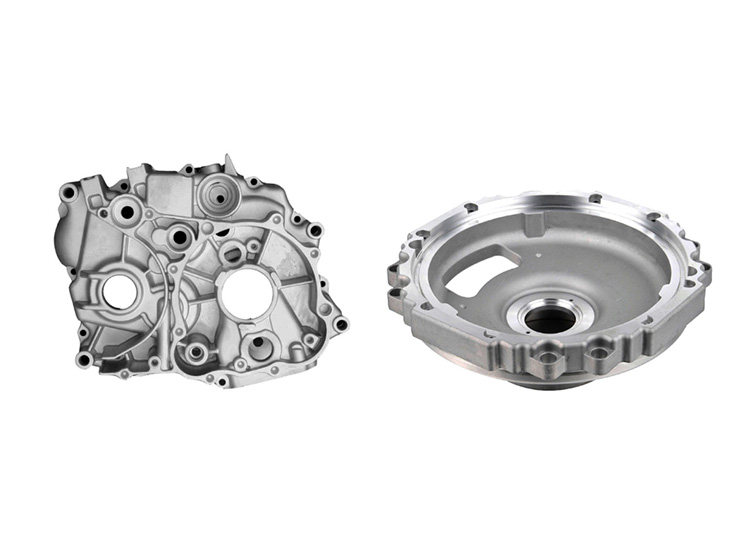The Ultimate Guide To Stahl Specialty Company
The Ultimate Guide To Stahl Specialty Company
Blog Article
How Stahl Specialty Company can Save You Time, Stress, and Money.
Table of ContentsStahl Specialty Company - QuestionsStahl Specialty Company Things To Know Before You Get ThisStahl Specialty Company Can Be Fun For EveryoneWhat Does Stahl Specialty Company Mean?Not known Factual Statements About Stahl Specialty Company
There are many small distinctions between functioned and cast aluminum alloys, such as that actors alloys can contain extra considerable quantities of other metals than functioned alloys. But the most notable difference in between these alloys is the manufacture process where they will certainly go to deliver the final item. Besides some surface area therapies, cast alloys will certainly exit their mold and mildew in virtually the exact solid type desired, whereas wrought alloys will undergo a number of adjustments while in their solid state.If you think that a wrought alloy may be the finest for your task, take a look at some of our write-ups that clarify even more regarding particular wrought alloys, such as Alloy 6061 and Alloy 6063. On the various other hand, if you believe an actors alloy would certainly be much better for you, you can discover more regarding some actors alloys in our Alloy 380 and Alloy 383 write-ups (coming quickly).

Having the experience and industry understanding to craft your spreadings for optimal production and top quality outcomes will certainly simplify the project. Producing light weight aluminum castings needs a facility set of processes to accomplish the best results. When selecting a new aluminum factory to partner with, ensure they have substantial industry experience and are experienced about all facets of the light weight aluminum casting procedure: design, manufacturing, material evaluation, and product testing.
The Only Guide for Stahl Specialty Company
The factory should also have a tested track record of providing phenomenal items that fulfill or go beyond consumer expectations. Quality control needs to additionally go to the top of your checklist when selecting a light weight aluminum factory. By collaborating with a qualified foundry that adheres to the criteria for quality assurance, you can safeguard the integrity of your item and ensure it meets your specifications.
By selecting a company that uses services that meet or exceed your item needs, you can be sure that your job will be finished with miraculous accuracy and efficiency. Specific aluminum factories focus on specific sorts of making processes or casting approaches. Various parts need different manufacturing methods to cast aluminum, such as sand casting or pass away spreading.

Die casting is the name provided to the process of developing complex metal parts through use mold and mildews of the component, also referred to as passes away. The process makes use of non-ferrous steels which do not consist of iron, such as aluminum, zinc and magnesium, because of the preferable buildings of the metals such as reduced weight, greater conductivity, non-magnetic conductivity and resistance to corrosion.
All About Stahl Specialty Company
Die casting manufacturing is fast, making high production degrees of parts very easy. It generates more parts than any type of various other process, with a high degree of precision and repeatability. To read more about die casting and pass away spreading products made use of in the process, continued reading. There are three sub-processes that fall under the category of Aluminum Casting die casting: gravity pass away spreading (or irreversible mold spreading), low-pressure die casting and high-pressure die casting.
After the purity of the alloy is tested, passes away are developed. To prepare the passes away for spreading, it is essential that the passes away are clean, so that no deposit from previous manufacturings remain.
The pure steel, likewise called ingot, is added to the heating system and kept at the molten temperature level of the metal, which is after that transferred to the injection chamber and injected right into the die. The pressure is then maintained as the steel solidifies - aluminum foundry. When the steel solidifies, the cooling procedure begins
The thicker the wall surface of the part, the longer the cooling time due to the quantity of indoor steel that also requires to cool down. After the element is fully cooled, the die cuts in half open and an ejection system pushes the part out. Following the ejection, the die is shut for the next shot cycle.
Our Stahl Specialty Company Statements

Nonetheless, this confirmed to be an imprecise examination, since the tester could cut right into an item and miss a location with porosity. Today, leading makers use x-ray screening to see the whole interior of components without cutting into them. This permits them to a lot more precisely accept or reject elements. To reach the completed product, there are 3 key alloys utilized as die casting product to select from: zinc, light weight aluminum and magnesium.
Zinc is among the most previously owned alloys for die casting because of its reduced expense of basic materials. It's also among the more powerful and steady steels. Plus, it has excellent electrical and thermal conductivity. Its deterioration resistance also allows the elements to be lengthy enduring, and it is just one of the much more castable alloys as a result of its reduced melting factor.
The Ultimate Guide To Stahl Specialty Company
As mentioned, this alloy is one of the most typically made use of, yet manufactures will, at times, pick light weight aluminum over zinc due to light weight aluminum's production benefits. Aluminum is highly economical and one of the extra functional alloys. Light weight aluminum is utilized for a number of different products and industries anything from window structures to aerospace products.
Report this page